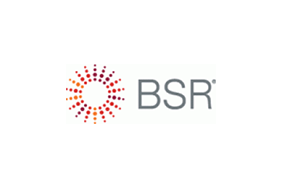BSR Report Reveals Rise of ESG Integration in Mainstream Investing
Published 10-07-09
Submitted by BSR
As more mainstream investors begin to use environmental, social, and governance criteria (ESG) to inform their investment decisions, BSR's new report provides business leaders with an analysis of trends in "ESG integration" and recommendations for companies and investors.
ESG integration refers to the incorporation of ESG criteria into investment analysis based on the belief that such issues drive financial returns. As more investment firms begin to view ESG integration as a way to create competitive advantage and differentiate their firms, there are indications that ESG is on the rise. According to a 2009 Responsible-Investor.com survey of 75 respondents representing more than US$28 trillion in assets under management, 60 percent said they use an ESG strategy for at least a portion of their assets, and 73 percent believe that asset owner interest has grown since 2008 as a result of stakeholder, political, and regulatory pressure, as well as risk management. In addition, the number of signatories to the UN Principles for Responsible Investment has soared to 500, representing US$18 trillion of assets.
"The increase in ESG integration has significant implications-and not just for the financial services industry," said the report's main author, Laura Commike Gitman, Director, Advisory Services, who leads BSR's financial services practice. "Traditional financial metrics are no longer sufficient to predict long-term sustainable performance and share price, and businesses today face greater scrutiny from a variety of stakeholders on practices related to ESG issues."
When thinking about how to manage ESG issues and communicate with investors, BSR's report, "ESG in the Mainstream: The Role for Companies and Investors in Environmental, Social, and Governance Integration," recommends that companies consider the following key trends:
- Integration is still somewhat limited to specific investor types or niche products. The majority of the growth in integration is being driven by global pension funds, especially in Europe. This is due both to the incorporation of ESG factors into their fiduciary duty, and the longer time horizon of institutional investors. While few large-scale mainstream investors have integrated ESG criteria across their full portfolios, some are designing specialized products to meet the demands of a specific client base.
- Investors focus on material issues. Rather than using all ESG factors with available data, mainstream investors are applying the concept of materiality to evaluate which of these issues are likely to influence companies' products, clients, and market share most significantly. The investors then integrate performance indicators only for those particular issues and for those particular companies or sectors.
- Companies are not proactively communicating to investors on ESG issues. Many companies cite a lack of questions from investors to explain why they have yet to integrate ESG into their communications. Consequently, investor relations officers generally have been reactive rather than proactive in providing investors with data about ESG issues.
To respond to and promote ESG integration, BSR recommends that companies ensure that their senior management and investor relations teams develop familiarity with the ESG issues that are most material for their business and create a proactive strategy for communicating with investors on ESG performance.
The investment community should advance integration by requesting ESG data from investor relations offices and management and by embedding the integration approach into their own firms.
"When investors begin analyzing ESG performance the same way they assess a company's management team or external market risks, then companies will be rewarded or penalized for how they manage ESG issues as part of improving overall business performance and long-term, sustainable growth," said Gitman. "While ESG integration is not yet a typical investment approach, there is exciting momentum in this direction. BSR looks forward to continuing this dialogue with investors, public companies, research and data providers, and other experts in an effort to help shape the future of investments."
For more information about the report or BSR's financial services practice, contact Laura Commike Gitman at lgitman@bsr.org.
About BSR
A leader in corporate responsibility since 1992, BSR works with its global network of more than 250 member companies to develop sustainable business strategies and solutions through consulting, research, and cross-sector collaboration. With six offices in Asia, Europe, and North America, BSR uses its expertise in the environment, human rights, economic development, and governance and accountability to guide global companies toward creating a just and sustainable world. Visit www.bsr.org for more information.

BSR
BSR
Since 1992, Business for Social Responsibility (BSR) has been providing socially responsible business solutions to many of the world's leading corporations. Headquartered in San Francisco, with offices in Europe and China, BSR is a nonprofit business association that serves its 250 member companies and other Global 1000 enterprises. Through advisory services, convenings and research, BSR works with corporations and concerned stakeholders of all types to create a more just and sustainable global economy. For more information, visit www.bsr.org.
More from BSR

